This is a big step in making these plastic-focused companies accountable. It is not just the bottles or product itself, it is the packaging it comes in, the bottle cap, the plastic around the bottle-cap, the label which comes off easily and washes out to sea.
In October 2019 the word went out that Coca-Cola, Nestlé, and PepsiCo are the top 3 most identified companies in global brand audits for the second year in a row, according to a new report “BRANDED Volume II: Identifying the World’s Top Corporate Plastic Polluters.”
Four hundred and eighty-four cleanups in over 50 countries and 6 continents, organised by the Break Free From Plastic movement in September, identified the top polluting companies. The rest of the companies rounding out the top 10 polluters are Mondelēz International, Unilever, Mars, P&G, Colgate-Palmolive, Phillip Morris, and Perfetti Van Melle.’ (Break Free From Plastic)
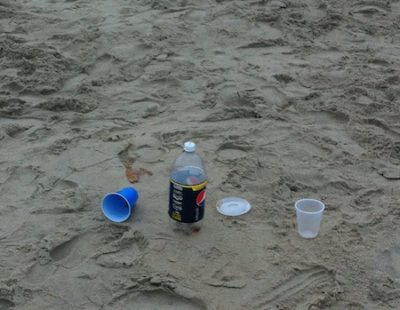
As a beach cleaner, it is appalling how much water is wasted and left on the beach. How many undrunk drinks are left. Everyday I pour out drinks. The water is kept to water my plants. As to the brands: Coke is #1, Kirkland (Costco) is in the top along with all the other Nestle, Pepsi and Coca Cola brands.
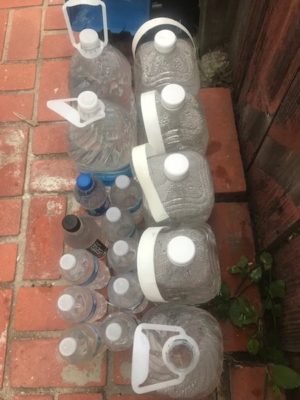
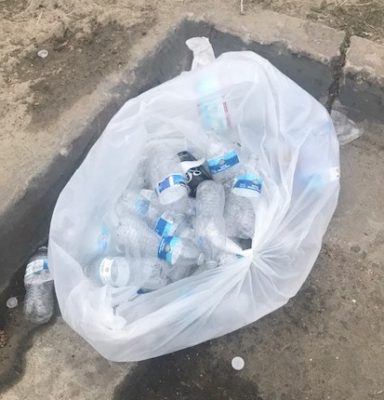
Here is the press release:
Earth Island Institute, represented by Cotchett, Pitre, & McCarthy, filed the first major lawsuit against Crystal Geyser Water Company (owned by Otsuka Company) , The Clorox Company (Owned by Proctor and Gamble) , The Coca-Cola Company, Pepsico, Inc., Nestlé USA, Inc., Mars, Incorporated, Danone North America (owned by Sofina) , Mondelez International (owned by Kraft Food), Inc., Colgate-Palmolive Company, and The Procter & Gamble Company for polluting our waterways, coasts, and oceans with millions of tons of plastic packaging. The lawsuit was filed in California State Superior Court in the County of San Mateo alleging violations of the California Consumers Legal Remedies Act, public nuisance, breach of express warranty, defective product liability, negligence, and failure to warn of the harms caused by their plastic packaging.
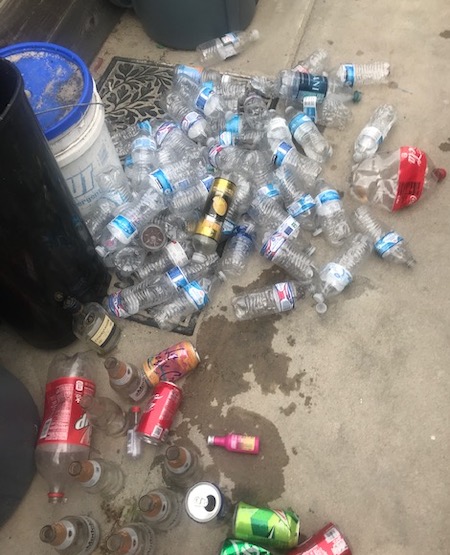
“This is the first of what I believe will be a wave of lawsuits seeking to hold the plastics industry accountable for the unprecedented mess in our oceans,” said Josh Floum, Earth Island Institute’s Board President. “These plastics peddlers knew that our nation’s disposal and recycling capabilities would be overrun, and their products would end up polluting our waterways.”
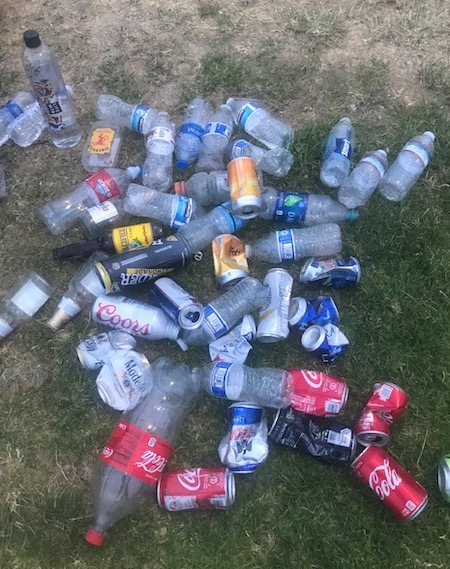
Through this lawsuit, Earth Island is seeking, among other things, to recover the significant resources it expends to prevent and mitigate the effects of plastic pollution on humans, wildlife, oceans, and waterways in California, where the impacts are particularly acute.
For example, an October 2019 report by the San Francisco Estuary Institute revealed that the San Francisco Bay has some of the highest levels of microplastics measured anywhere to date, and many of the particles appear to be linked to single-use plastic items.
And a June 2019 study by the Monterey Bay Aquarium Research Institute found that microplastic concentration in Monterey Bay exceeds that of the Great Pacific Garbage Patch, and that the primary source was plastic associated with food, beverage, and other consumer goods. The same study also found that small marine animals are consuming these microplastics, thus introducing the particles into the food web that feeds California.
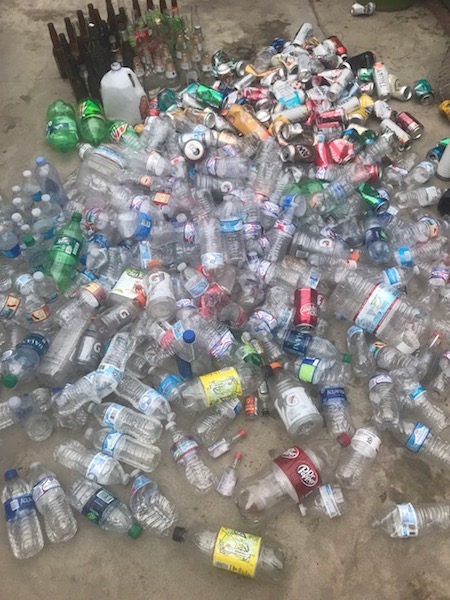
Mark Molumphy, a partner at Cotchett, Pitre & McCarthy, lead counsel for Earth Island, said “This is not just a disaster that future generations will have to deal with. It is happening now and getting worse with each passing day. We are ingesting more and more plastic in the water we drink and the food we eat.” The complaint alleges that the average person ingests approximately 5 grams of plastic on a weekly basis – roughly the equivalent of a credit card. Furthermore, as described in the complaint, plastic alters the chemical composition of the ocean when it breaks apart into smaller pieces by releasing toxic chemicals into the surrounding water.
Potential pollutants released through this process include bisphenol A and PS oligomer, two known hormone disruptors. Finally, plastic particles attract other toxins, such as polychlorinated biphenyls (PCBs) and polycyclic aromatic hydrocarbons (PAHs), thus becoming more toxic to humans, wildlife, and the environment over time.
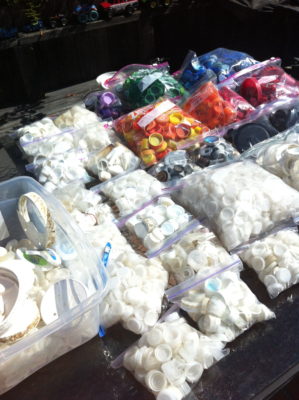
Joe Cotchett, another partner at Cotchett, Pitre and McCarthy, said “The trillion dollar plastic industry is polluting our oceans, rivers and bays – the Government won’t stop them, but Earth Island is willing to take them on –“
“The products that we are targeting in our lawsuit are contained in plastic packaging that is designed to be used for a short period of time, sometimes just a few minutes. And yet, this packaging pollutes our bodies from one generation to the next, and our planet for centuries,” said Earth Island’s General Counsel Sumona Majumdar. “The Coca-Cola Company and our other defendants churn out millions of tons of plastic packaging each year and want us to believe that it is all being recycled. It’s a misinformation campaign, similar to those used by Big Tobacco, Big Oil, and Big Pharma. Now is the time to hold Big Plastic similarly accountable.”
For almost forty years, Earth Island Institute has developed and supported projects that counteract threats to the planet’s biological and cultural diversity, while also building the next generation of environmental leaders and educating the public on environmental issues. Earth Island also plays a leading role in the fight to protect our oceans, coasts, and marine life.
“Scientists estimate that by 2050 there will be more plastic than fish by weight. We are putting too much plastic in and taking too many fish out. Now, we are doing both by pulling plastic out of the ocean inside the shark. This has to stop, and we have to stop it now,” said David McGuire, Director of Shark Stewards.
Earth Island has filed this case in its own right and on behalf of the following sponsored projects:
● Plastic Pollution Coalition, found in 2009, is a growing global alliance of more than 1,000 organizations, businesses, and thought leaders in 75 countries working toward a world free of plastic pollution and its toxic impacts on humans, animals, waterways, oceans, and the environment.
● The International Marine Mammal Project is one of the leading groups fighting to protect dolphins, whales, and the ocean environment.
● Shark Stewards works to restore ocean health by saving sharks from overfishing and the shark fin trade, and protecting critical marine habitat through the establishment of marine protected areas and shark sanctuaries. As part of this effort, it launched a marine debris prevention effort that regularly conducts cleanups and quantifies marine debris in the San Francisco Bay Area.
● 1000 Fountains is building a network of one thousand drinking fountains throughout San Francisco in order to provide consumers with alternatives to single-use plastic bottles.
A press conference will be held at 10:30 a.m. on Thursday, February 27, 2020, at the Berkeley Recycling Center, 669 Gilman Street, Berkeley, CA. Please meet on Second Street, just north of Gilman Street. The Ecology Center pioneered curbside recycling in 1973 and is the longest running curbside recycler in the nation. “Companies need to take responsibility for the pollution they have created,” said Martin Bourque, Executive Director of the Ecology Center. “From the shoreline to the recycling sorting line, Big Plastic has contaminated our ecosystems and recycling system. Its time for them to clean up their mess.”
Filed complaint available here.
Relevant reports and articles:
Companies use misleading “recyclable” label
Branded: Vol II Identifying the World’s Top Corporate Polluters
Recycling Is Not Enough” It’s time to rethink how to solve the plastic waste crisis
San Francisco Bay Microplastics Project
New study finds microplastics throughout Monterey Bay
